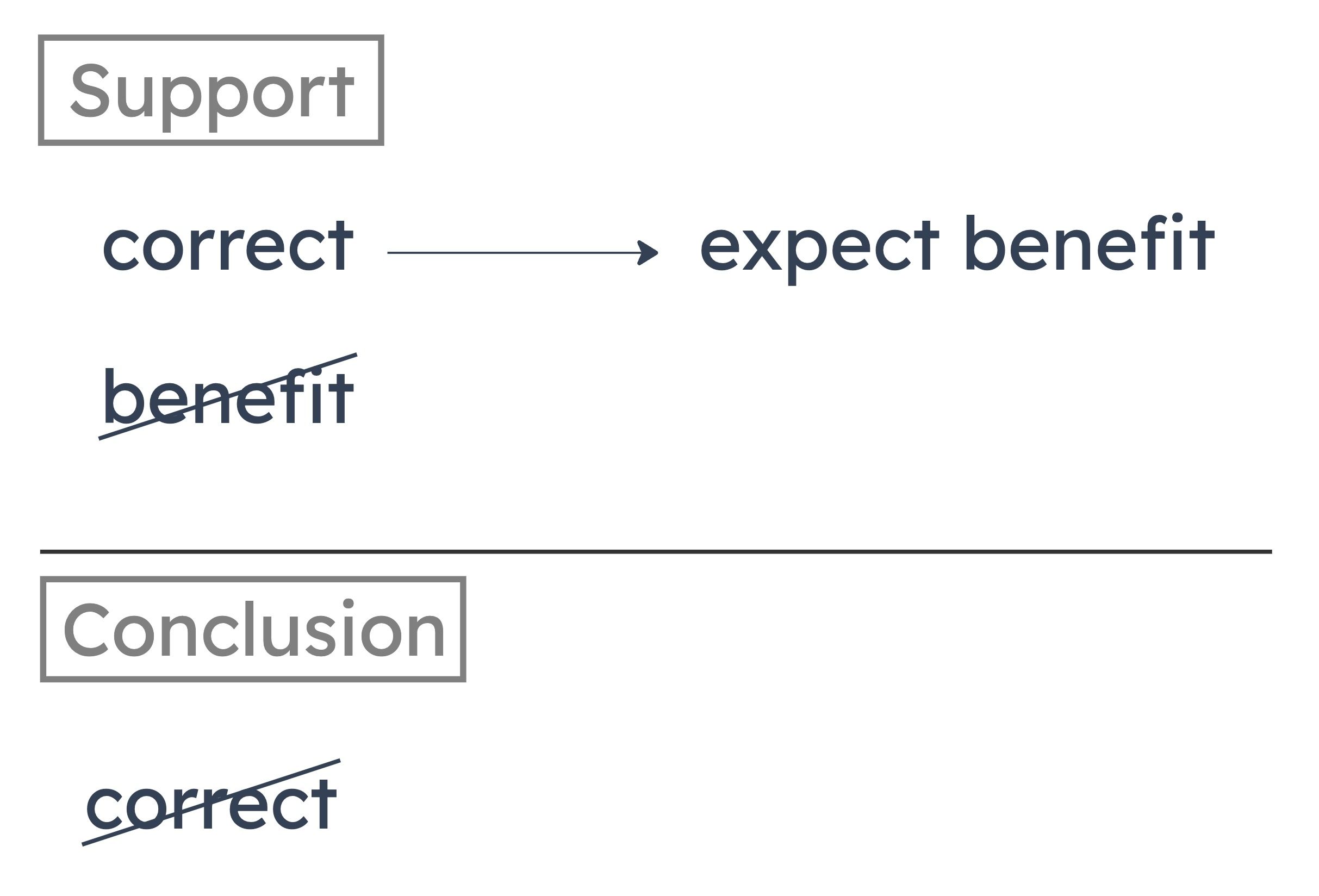LSAT 151 – Section 3 – Question 07
LSAT 151 - Section 3 - Question 07
September 2018You need a full course to see this video. Enroll now and get started in less than a minute.
Target time: 1:02
This is question data from the 7Sage LSAT Scorer. You can score your LSATs, track your results, and analyze your performance with pretty charts and vital statistics - all with a Free Account ← sign up in less than 10 seconds
| Question QuickView |
Type | Tags | Answer Choices |
Curve | Question Difficulty |
Psg/Game/S Difficulty |
Explanation |
|---|---|---|---|---|---|---|---|
| PT151 S3 Q07 |
+LR
| Flaw or descriptive weakening +Flaw Conditional Reasoning +CondR Fact v. Belief v. Knowledge +FvBvK | A
1%
151
B
1%
146
C
3%
156
D
3%
150
E
91%
162
|
133 141 148 |
+Easier | 146.292 +SubsectionMedium |
Summarize Argument
The author argues that rational-choice theory is not correct. She supports this by saying that if it were correct, then people would only act in ways that they expect will benefit them, but there are many examples of people acting in ways that do not benefit them.


Identify and Describe Flaw
By showing that many people act in ways that don’t benefit them, the author assumes that she’s negating the necessary condition for rational-choice theory being correct. But in reality, the necessary condition is that people will always act in ways that they expect will benefit them.
It’s possible that people expected to benefit from their actions, even though they didn’t benefit. In this case, the author can’t conclude that rational-choice theory is incorrect.
A
assumes as a premise the contention the argument purports to establish
This is the cookie-cutter flaw of circular reasoning, where the argument’s conclusion simply restates one of its premises. The author doesn’t make this mistake; her premises may not support her conclusion well, but they are distinct from her conclusion.
B
concludes that a theory is false merely on the grounds that the evidence for it is hypothetical
The author does conclude that rational-choice theory is false, but not on the grounds that the evidence for it is hypothetical. Instead, she concludes it’s false based on examples that she believes prove it to be false.
C
takes for granted that people who are acting in ways that are personally beneficial expected that their actions would be personally beneficial
Actually, the author assumes that people who are acting in ways that are not personally beneficial did not expect that their actions would be personally beneficial. (C) has this backwards.
D
presumes, without justification, that examples of people acting in ways that are not personally beneficial greatly outnumber examples of people acting in ways that are personally beneficial
The author never assumes there are more examples of people acting in ways that are not personally beneficial than people acting in ways that are. She just says there are “plenty” of examples of people acting in ways that don’t benefit them, which she thinks disproves the theory.
E
fails to consider that people acting in ways that result in no personal benefit may nonetheless have expected that acting in those ways would produce personal benefit
Just because people sometimes act in ways that don’t benefit them doesn’t mean that those people weren’t expecting to benefit from their actions. If they were, the author can’t conclude that rational-choice theory is incorrect.
Take PrepTest
Review Results
LSAT PrepTest 151 Explanations
Section 1 - Reading Comprehension
- Passage 1 – Passage
- Passage 1 – Questions
- Passage 2 – Passage
- Passage 2 – Questions
- Passage 3 – Passage
- Passage 3 – Questions
- Passage 4 – Passage
- Passage 4 – Questions
Section 2 - Logical Reasoning
- Question 01
- Question 02
- Question 03
- Question 04
- Question 05
- Question 06
- Question 07
- Question 08
- Question 09
- Question 10
- Question 11
- Question 12
- Question 13
- Question 14
- Question 15
- Question 16
- Question 17
- Question 18
- Question 19
- Question 20
- Question 21
- Question 22
- Question 23
- Question 24
- Question 25
- Question 26
Section 3 - Logical Reasoning
- Question 01
- Question 02
- Question 03
- Question 04
- Question 05
- Question 06
- Question 07
- Question 08
- Question 09
- Question 10
- Question 11
- Question 12
- Question 13
- Question 14
- Question 15
- Question 16
- Question 17
- Question 18
- Question 19
- Question 20
- Question 21
- Question 22
- Question 23
- Question 24
- Question 25
Leave a Reply
You must be logged in to post a comment. You can get a free account here.